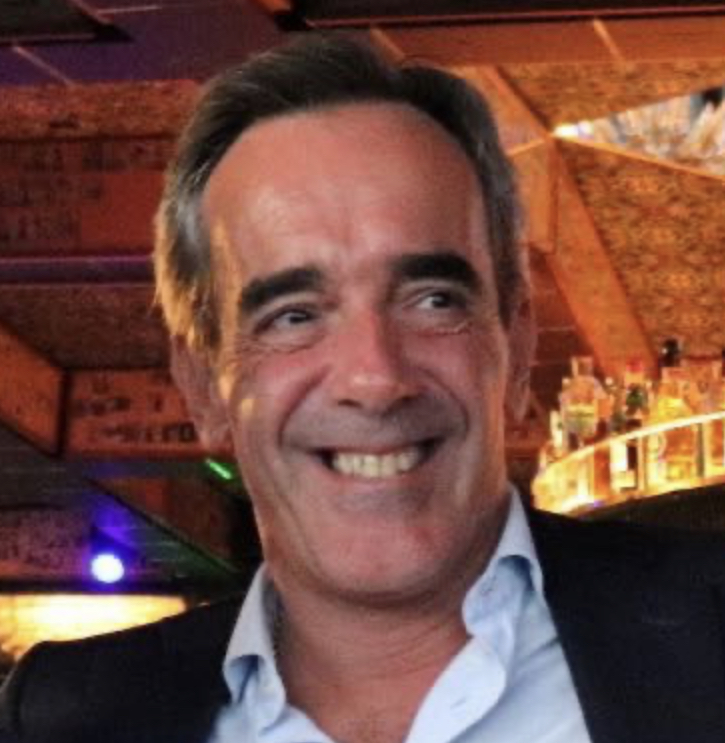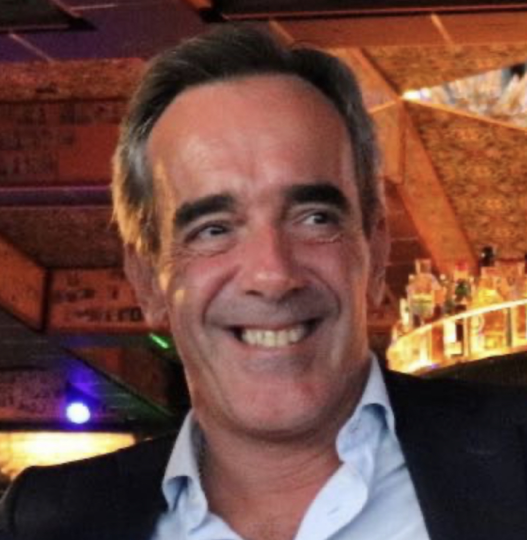JORGE AFONSO MORGADO
PORTUGAL: THE VERTIGO OF THE ABYSS OR THE OPPORTUNITY TO CHANGE YOUR LIFE?

Portugal’s Public Prosecutor’s Office announced the opening of a judicial investigation into the alleged “intervention to unblock procedures” of the Portuguese Prime Minister, António Costa. In the process, his official residence was searched, his chief of staff and a close friend were arrested, and both were charged, along with the Minister of Infrastructure.
Costa took the only action a dignified person can take: he decided quickly and resigned. It is worth underlining the dignity of this gesture, as it is not a very fashionable quality in political life these days. Moreover, the sensitivity and good sense shown by Costa at this critical moment have been used less frequently in the year and a half that he has been at the head of a government with an absolute majority. That absolute majority has become the factor of political stability that he never achieved in the six years and two previous governments. Ironically, it has been this “life insurance” that seems to have contributed to the fact that the leader of the Government has lowered his guard in domestic affairs, dedicating more time to the great issues of the European Union and less to the management of his Socialist Party and to the agitation of the political dolphins within his own Executive.
It was not the wear and tear of eight years in power that brought down the Government. Nor was it an alternative opposition, which did not exist. What brought down the Government was a judicial investigation into suspicious practices surrounding concessions for lithium exploration and hydrogen production and a statement by the Public Prosecutor’s Office.
The spotlight the next day points in only two directions. The Public Prosecutor’s Office, which oversees and directs the criminal investigation, and the President of the Republic, responsible for promoting a new government from the same (absolute) parliamentary majority or calling new general elections.
SLOW JUSTICE AND MEDIA JUSTICE
Portugal is not in an “Operation Clean Hands” like Italy in the 1990s, where the work of the judges led to the decapitation of political power and a long period of short governments, sometimes populist, sometimes formed by national salvation technocrats. Portugal is also not immersed in a “Lava-jato” promoted by a Republic of Judges that imprisons, frees, elects and overthrows presidents, like Brazil in recent years.
Portugal has a complex and blocked judicial system, with mega-cases that drag on for years – sometimes decades – and more often end in statutes of limitations and dismissals than in convictions and clarifications. The rare cases of actual imprisonment as a result of corruption cases are exceptions to the popular belief in the widespread impunity of the “rich” and “powerful”.
The country lives in an uncontrolled and relentless maelstrom of destruction of the good name and credibility of both public officials and ordinary citizens, with or without well-founded guilt and respectable judgment. Not in the courts, as it should be, but through successive and summary cases of popular judgment (by television, of course!), which destroy people, decapitate capitals and impoverish the country. The real judicial system, on most occasions and either for lack of evidence, lack of means or lack of competence, does not deliver justice.
Before António Costa’s resignation, just a week ago, the President of the Supreme Court of Justice stated in an interview that “corruption is widespread in Portugal and has a very strong expression in the public administration. This is not just a perception, it is a certainty!”. In short, in this area as in others, Portugal cannot afford to frequently jeopardize its image and its external reputation.
Reality does not help. We already had a former Prime Minister – Socialist José Sócrates, detained for a few months – being investigated for almost ten years without trial, and now we have a sitting Prime Minister having to resign for being implicated in a judicial investigation.
TRANSPARENCY AND SERIOUSNESS
The Portuguese sometimes have doubts, but Portugal is a state governed by the rule of law. However, it should show greater similarities, in terms of solidity, modernity and credibility, with other states governed by the rule of law. It is not enough to proclaim that “no one is above the law”.
For this to really happen, it is imperative that the Attorney General’s Office realizes the extreme delicacy of the present moment. It is mandatory that the judicial investigation progresses and it is necessary that the investigation targeting the Prime Minister be transparent (with the disclosure of all elements that can be made public without prejudice to the investigation and the rights of the defense). It is inevitable that the conclusions – indictment or dismissal – will be swift. Accusatory or dismissal, as fast as an investigation should be in a privileged and exclusive forum such as the one reserved for the third figure of the nation (the law states that it is up to the Supreme Court of Justice to conduct an investigation on the Prime Minister).
If the result is a sustained and unequivocal accusation, the situation is very bad, but justice has worked. If the conclusion of António Costa’s case is that it should be archived, the situation is very bad. Because then we will conclude that justice did not work properly and led to the resignation of a Prime Minister and the fall of a Government without sufficiently serious, solid and certain evidence.
In a sound rule of law, the Prosecutor’s Office cannot allow citizens to even admit that a criminal investigation against a Prime Minister, which led to his resignation, was opened lightly.
THE CRUCIAL DECISION OF THE PRESIDENT
The focus on the President of the Republic, being of a constitutional and political nature, is all the more decisive for the future of the country. What is expected of Marcelo Rebelo de Sousa is that, making use of his intelligence and wisdom, he makes the best possible decisions. In a context of crisis in which, by definition, there are no perfect solutions.
The President can ask the party with an absolute majority in Parliament to present a new candidate for Prime Minister, or he can dissolve the Assembly and call new legislative elections. If he does so, it will be important to know when. Will he or will he not give the Socialists enough time to reorganize, find a replacement for António Costa and prepare a capable program? And, depending on the date he sets, will it favor or harm the chances of the opposition parties, theoretically better prepared to go to the polls in the short term?
In Portugal, as in many European countries -from the Mediterranean to the Baltic-, there is a growing problem with the electoral weight of extremist, anti-system and populist parties. The hollowing out of the center is not a new or unexpected issue, but since the 2015 elections it has acquired an inevitable dimension: it is no longer possible to form parliamentary majorities without the support of radicals. Either with the far-left deputies who made possible the socialist governments from 2015 to 2021. Or, as polls show, with the support of the extreme right for a government led by the PSD social democrats.
Marcelo Rebelo de Sousa is an exceptional democrat, a guarantor of the value of freedom and an example of Social-Christian humanism. Like so many other moderates, he is concerned about the scenario in which we live. And he will not go down in history as the president who inaugurated a government formed or supported by parties that endanger the stability of the regime and the democratic model. Much less at a time when we have a war in Europe, a war in the Middle East and an international framework of tension, unpredictability and high risk.
Marcellus will do everything in his power to avoid chaos and disorder. As far as the president is concerned, we will not see in Portugal images similar to those of the negotiating rounds of the Spanish socialists with representatives of movements condemned (by the courts and in completely clear cases) for terrorism and secession, nor riots similar to the popular uprisings against the PSOE headquarters, which have gathered thousands of indignados in the streets of Madrid to demonstrate against the amnesty plotted to allow Pedro Sanchez to remain at the head of the Government.
THE SOLUTION MUST BE FOUND IN THE POLITICAL CENTER
2024 marks the 50th anniversary of April 25, 1974. The revolution put an end to the authoritarian regime of the Estado Novo and brought with it the hope of freedom, democracy and development for Portugal. While the so-called achievements of April are indisputable, so are many of the spectacular failures of the current regime. There is a dramatic crisis and structural blockage in healthcare, education, housing and social justice. There is no plan. Immovable conformism, the postponement of strategic options, dead ends dictated by the fear of making decisions and the weight of corporations, the weakening of institutions, the weakness of public services, the demographic aging, the desertification of the interior, the loss of authority of the State, the scarce citizen participation and the disinterest of citizens in politics are the hallmarks that the children and grandchildren of the revolution have inherited and that they have to manage in these almost 50 years since April 25.
The solution, after the elections or even before, can and must be found in the political center. The way out to the gravity of the moment, in which the discredit of politicians has reached an unimaginable level and the confidence in justice is very damaged, has to be given by the main founding parties of the regime: PSD and PS. Ideally through openness and the incorporation of Christian Democrats, liberals and moderate progressives. Desirably through a transitional government and on the model of an “executive of executives”, which would allow the State to execute the billions of euros of funding of the Recovery and Resilience Program, and at the same time carry out the set of mandatory reforms, not only to modernize and develop, but also to make possible a decent future for Portugal. There is a huge amount of money to invest in that future. Unlike the funds, this must not be another missed opportunity.
The answer, on its own initiative or at the President’s behest, lies in a coalition of national interest and a program of profound change for the country. At the center, with the parties. An inclusive but determined movement. Pragmatic, practical, realistic. To sell TAP (Portugal’s main airline) , to choose a site for the new Lisbon airport and to implement the national railway plan. Not necessarily against, but indifferent and oblivious to demagogic, unrealistic and unsustainable policies and proposals coming from the extremes. A government of transformation not anchored in the use of relevant but conservative senators of the regime. We need a government of a new generation of leaders, people from parties and institutions, but also from companies, universities and associations. New people, with a new world, without dependencies, fears or ties. With love for Portugal and willingness to do, changing the country’s paradigm.
To start by returning Portugal to a path of normality, credibility and trust would be perhaps the only worthy way to celebrate the 50th anniversary of April 25.
Jorge Afonso Morgado, Portuguese journalist, communications consultant.
This text is for free use. If you plan to use it, please cite the author and EditoRed.
Read here the original text in Portuguese.



